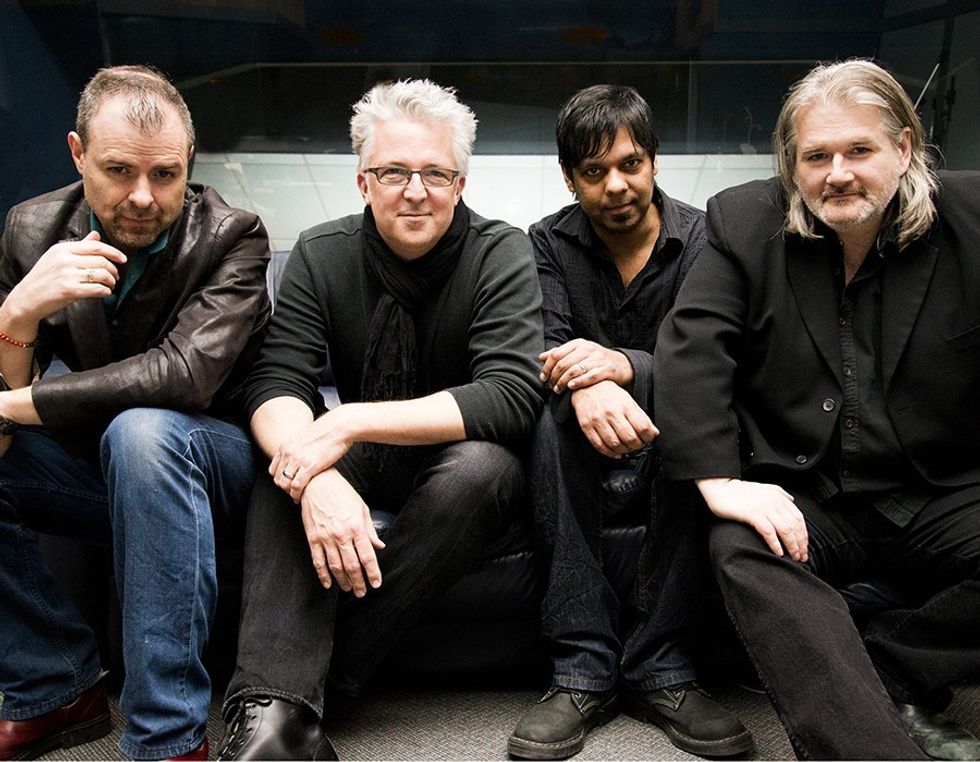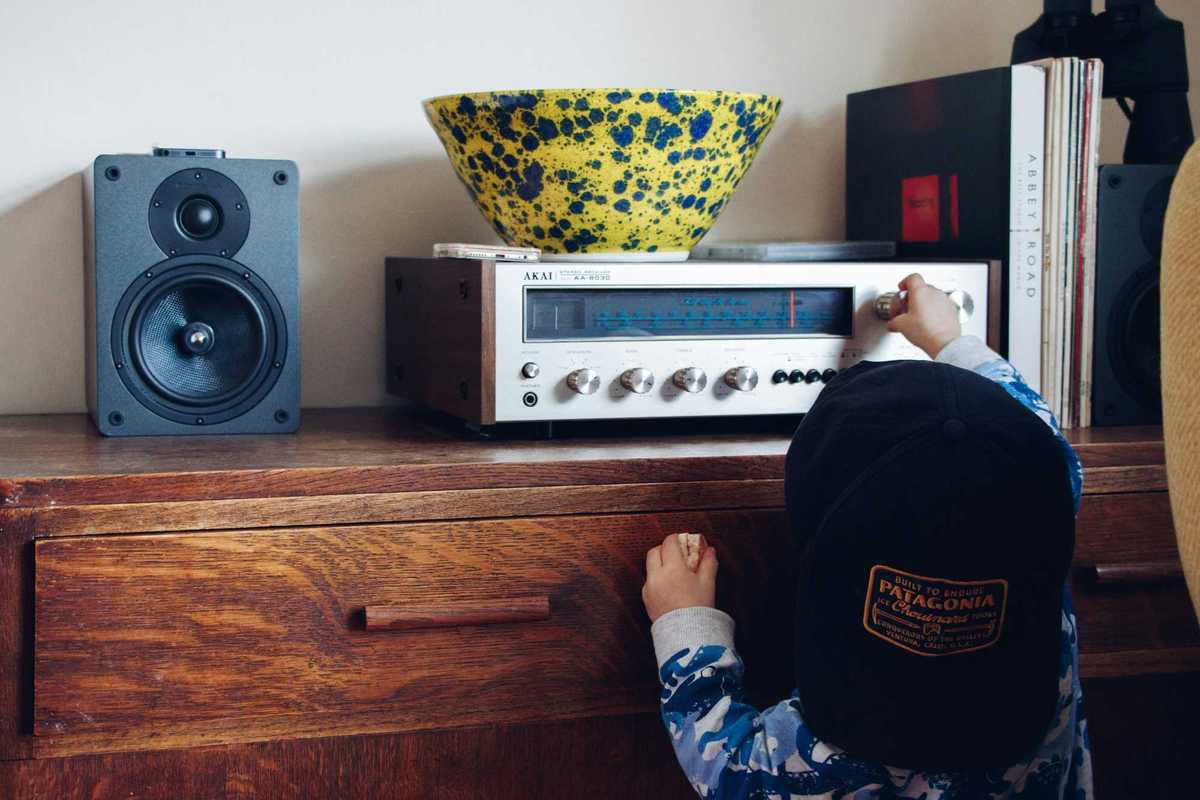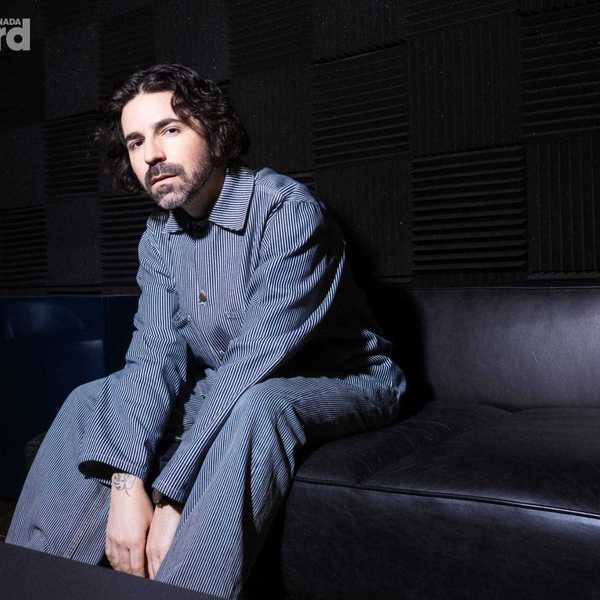Five Questions With… Monkey House's Don Breithaupt
The jazz-rock outfit has just released a fifth album, Friday. Here the group's leader reflects upon the album, 25 years of playing together, his artistic evolution, and songs he'd love to have written.

By Jason Schneider
Monkey House, the jazz-rock outfit led by acclaimed Toronto pianist and composer Don Breithaupt, has returned with a fifth album, Friday, available now worldwide through ALMA Records. It also marks 25 years for the group whose other core members include drummer Mark Kelso, bassist Pat Kilbride, and guitarist Justin Abedin.
Fans already familiar with Monkey House’s sophisticated musicianship, imaginative lyrics, and flair for melody will not be disappointed. But what they may notice on Friday, in comparison to the group’s previous album, 2016’s Left, is a greater emphasis on rhythm, as evidenced by the bouncy first single Shotgun.
And as has become the norm on Monkey House records, Friday features some notable guests such as guitarist Drew Zingg (Boz Scaggs), trumpeter Michael Leonhart (Steely Dan), and Snarky Puppy guitarist Mark Lettieri. Singer Lucy Woodward (Rod Stewart) also adds background vocals throughout, while famed vocal quartet The Manhattan Transfer is featured on the track The Jazz Life.
It’s all in part a testament to Breithaupt’s stellar track record as both a writer and musician, whose CV includes three Juno-nominated co-writes and work with Kim Mitchell and Rik Emmett. However, with Monkey House, Breithaupt has followed in the footsteps of his heroes, Steely Dan’s Walter Becker and Donald Fagen, in creating his own distinctive musical alchemy, and one of Friday’s standouts is a cover of Becker’s tune Book Of Liars, done in tribute following his passing in 2017.
We caught up with Breithaupt on the eve of Friday’s release, and you can find out more by going to @monkeyhouseofficial on Facebook.
What makes Friday different from your past work?
This is the first album we’ve done where basically every song began as a rhythmic concept, as opposed to a lyrical, harmonic or melodic concept. Of course, all those elements eventually make their way in as you write, but the seeds of all the songs on Friday are grooves, beats and bass line. It was a very, let’s say, non-Elton way of going about it!
What songs on the record are you most proud of and why?
The first track, 10,000 Hours, while making its little circular self-sabotaging argument, is funky as hell. I like the way it morphs into a samba mid-song, the way a late-seventies Earth, Wind & Fire jam might. I’m also fiercely proud of the pseudo-title track, Nine O’Clock Friday. I feel like everything I’ve learned as a musician, composer, lyricist and arranger is right there in that song.
How would you describe your artistic evolution so far?
Monkey House began as an outlet for songs I was writing back in the nineties that were a bit too jazzy or lyrically obtuse to pitch to young pop artists. So it was almost by definition a side project when it began. Now it’s the place where my best artistic energy ends up. It’s not a side project. It’s my main statement.
What do you recall about your first time performing in public?
I remember it like it was yesterday. I was seven, and the occasion was my first piano recital. The whole thing was in ultra-slow motion in my head. Afterward, I told my mom, “I like it when they clap!” I still do, and there’s actually something fundamental about being received by an audience that has nothing to do with ego. Making music is a two-way thing—someone has to be listening.
What song by another artist do you wish you had written?
Oh, there’s a very long list of those. Most wouldn’t surprise anyone who knows Monkey House. All the songwriters I draw on for inspiration would be in there: Becker/Fagen, Lennon/McCartney, Bacharach/David, Stevie Wonder, Joni Mitchell, Rickie Lee Jones, Paul Simon. I guess if I had to pick one, I’d say Still Crazy After All These Years. That song is perfect. Perfect execution of a great idea, with a poignant lyric that is also funny, and melody changes rooted in tradition, but still adventurous and surprising. The first melody note and chord change of the bridge are exhibit A: who the hell thinks of that? My second choice might also be by Paul Simon because it’s hard to beat American Tune.

















